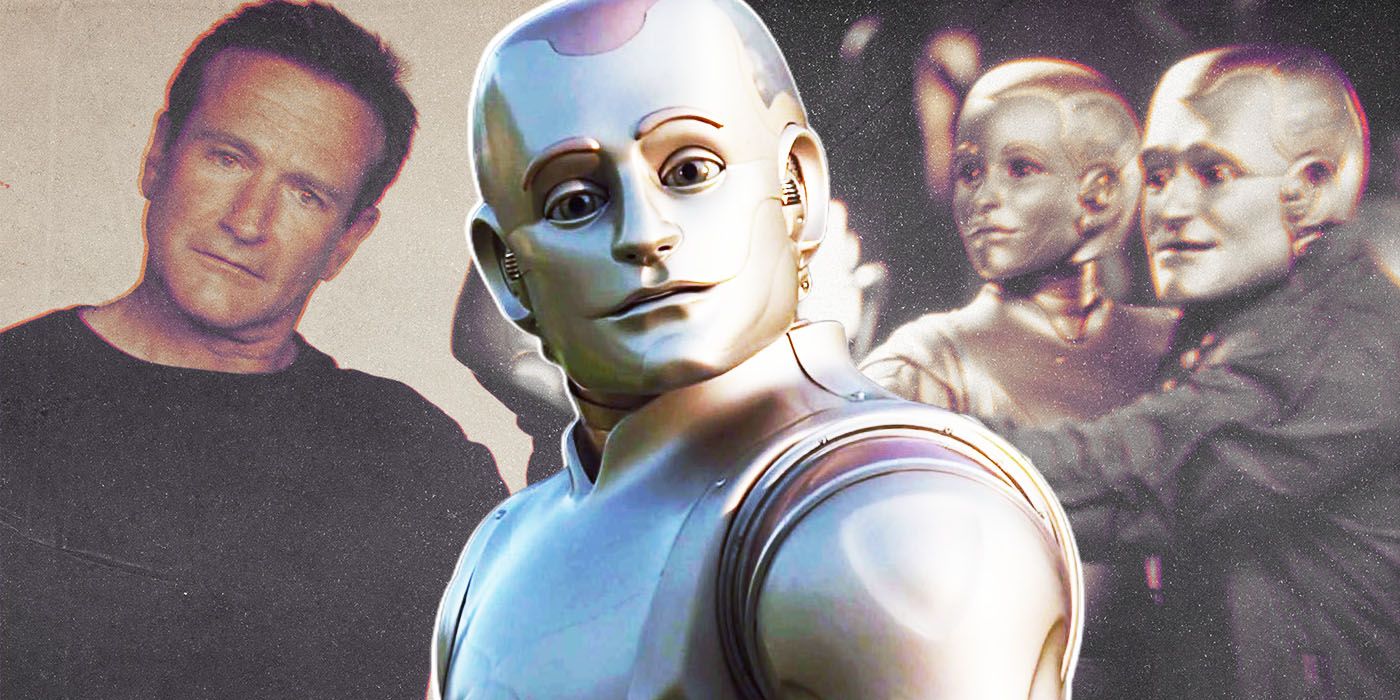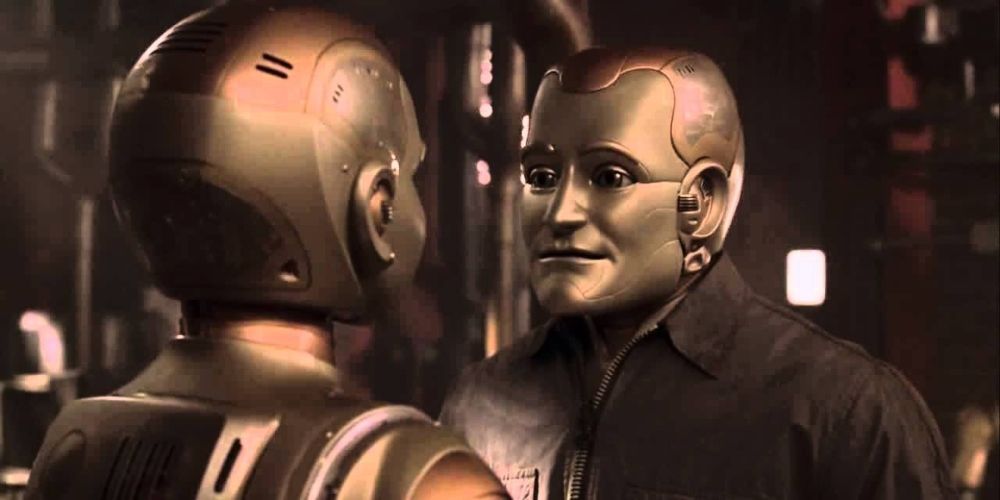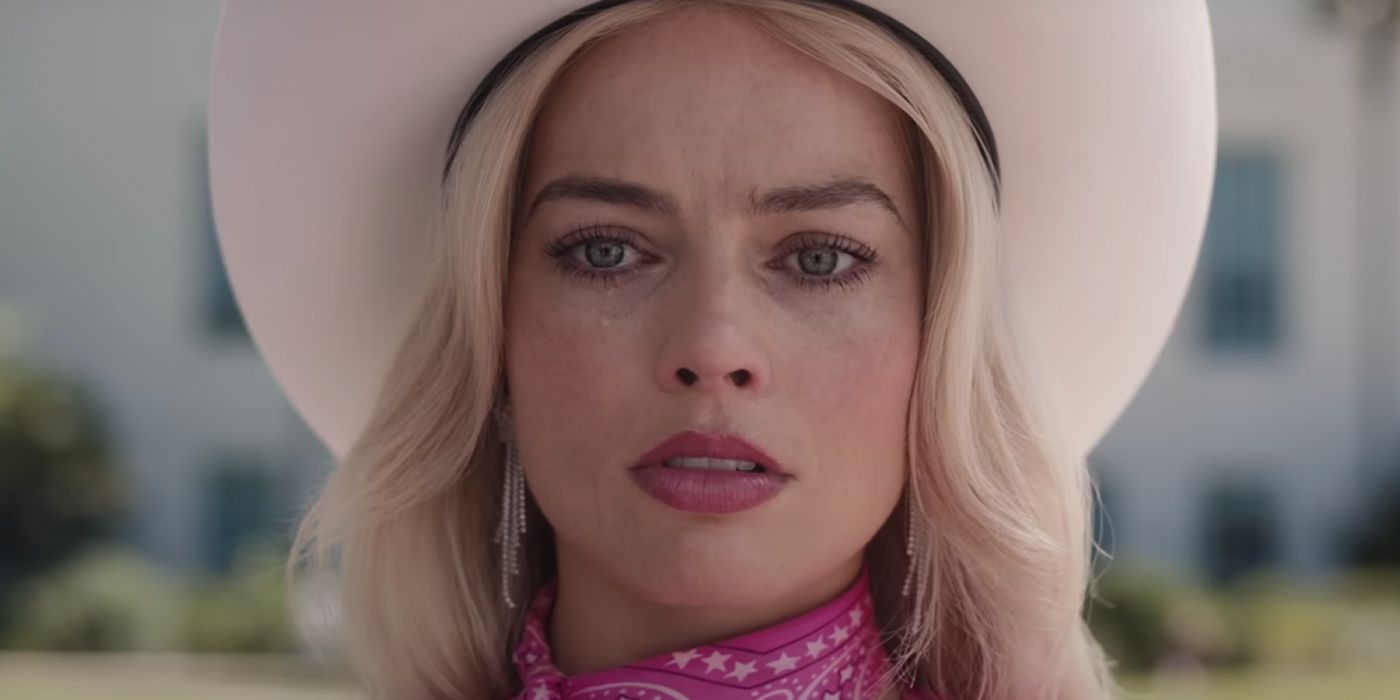Robin Williams is one of his generation’s most potent, acclaimed, and memorable actors. With so many iconic films under his belt, his saddest movie remains a prime example of how important it is to ensure a movie’s marketing matches its story.
Robin Williams may be known by many as a comedy actor and stand-up comedian, but his best roles were always more heartfelt, dramatic performances. Notably, his best performance can be found in Good Will Hunting, where he plays a widower therapist struggling to help a young man channel his talents and work through his own grief. The duality of his career, balancing serious drama with laugh-out-loud comedy, made for one of cinema’s most versatile, talented actors. Many who never liked the actor as a stand-up comedian acknowledge how emotive and skilled he was on the big screen. However, when he starred in a lesser-known science fiction comedy in the late ’90s, studio interference signaled a lack of faith in the movie. What had been one of the most emotional roles of Williams’ career was sold to audiences as just another goofy comedy.
Robin Williams’ Most Unappreciated Movie, Explained
Bicentennial Man was a 1999 adaptation of the Isaac Asimov science fiction novella of the same name. However, the film was more of a loose adaptation of the idea than a direct one. It follows the life of Andrew, a robotic servant bought by a wealthy family headed by Sir (Sam Neill). After taking him in (purchasing him), Sir begins to notice how he differs from other machines, and how he expresses a unique sense of individualism, creativity, and free thought. Impressed by his robot’s intelligence and curiosity, Sir decides to nurture Andrew’s inquisitive mind. However, things fall apart between them when, predictably, the android’s pursuit of knowledge and free thought results in him requesting his freedom. Despite feeling insulted by his friend’s request, Sir reluctantly grants Andrew his independence – forcing him to leave his house afterward.
Bicentennial Man’s plot can best be explained through three stages; Andrew’s service, Andrew’s freedom, and Andrew’s humanity. Tragically, Andrew lives agelessly as Sir and his descendants grow up, passing away and leaving Andrew behind. The audience experiences the same compression of time through Andrew’s eyes, with the android’s longevity making the lives of those around him feel fleeting. In the film’s third act, Andrew finally begins the long process of becoming human, receiving cybernetic organs and an extensive skin graft, gaining the appearance of a human Robin Williams. Here, the film ramped up its philosophical questions, exploring what makes a human being a human being. The third act was balanced between Andrew seeking formal recognition of his humanity and falling in love with Sir’s now adult granddaughter, Portia (Embeth Davidtz).
How Bad Marketing Sabotaged The Movie
Whether the two-hour-long science fiction movie would have been a commercial hit is still up for debate. Ultimately, the story was relatively esoteric, the runtime was long, and it didn’t receive good reviews, especially from critics. However, none of that has held back other classics of the same budget from making money. With Robin Williams nearing the peak of his skill as an actor and several great dramatic ’90s actors attached, like Sam Neill (Jurassic Park) and Embeth Davidtz (Matilda), a lot was going for it. The film’s idea, a robot seeking to become human, served as the basis for Steven Spielberg’s 2001 film A.I. Artificial Intelligence, which was somewhat successful and generally well-received. Bicentennial Man only managed to gross $80 million against a budget of around $95 million.
When Disney began marketing the movie, they created a false idea of just what the film was. What they sold to audiences was a wacky, ’80s-style screwball comedy full of slapstick and stand-up comedy jokes. The trailer came across as a corny, all-ages comedy set to the sound of upbeat music, namely Hot Chocolate’s I Believe In Miracles. The film being advertised felt more like a low-budget late ’90s/early 2000s Adam Sandler or Owen Wilson comedy than it did a Robin Williams dramatic comedy. While the works of Sandler and Wilson did make money, matching that tone with Williams was more of what his fans simply weren’t into.
Bicentennial Man was never going to be a smashing blockbuster hit, but in a decade known for dramatic and heartfelt cinema, it stood a good chance of earning better recognition. Everything that made the film unique, along with its dynamic, talented cast of serious actors, was played down in the trailer. A decade that had produced hits like Titanic, Philadelphia, The Green Mile, and Forrest Gump was clearly ready for a touching story of an android’s search for humanity. The problem didn’t just lie in how the studios marketed the film, but how little they did so. Much of what was released felt more like a TV movie, with low-resolution trailers that looked like they were put together at random. Putting it simply, the studio convinced themselves they were dealing with a flop – so they made it flop.
Marketing Has Always Been Key To Success
Recent hits like Barbie have shown how powerful a good and true marketing campaign can be in helping a film succeed at the box office. While a film like Bicentennial Man would never be in the running for success as great as that, nothing about the film should have prevented at least breaking even — especially considering how the film’s underlying idea, a basic Pinocchio analog, has succeeded in other projects. The movie wasn’t without its faults, but the final product was far better than what studios sold to potential audiences.
In the case of Bicentennial Man, its fans will never know whether it could have been a success. However, assessing the films that had resonated with audiences of the decade, the actual tone of the film would have pulled in more viewers than the idea it was a Flubber-style goofball comedy. The studio, Touchstone/Disney, should have read the room both for the decade and Williams’ fans. The actor had officially transitioned into dramedy, and that’s what audiences should have been sold — a bittersweet tale of classic science fiction.



